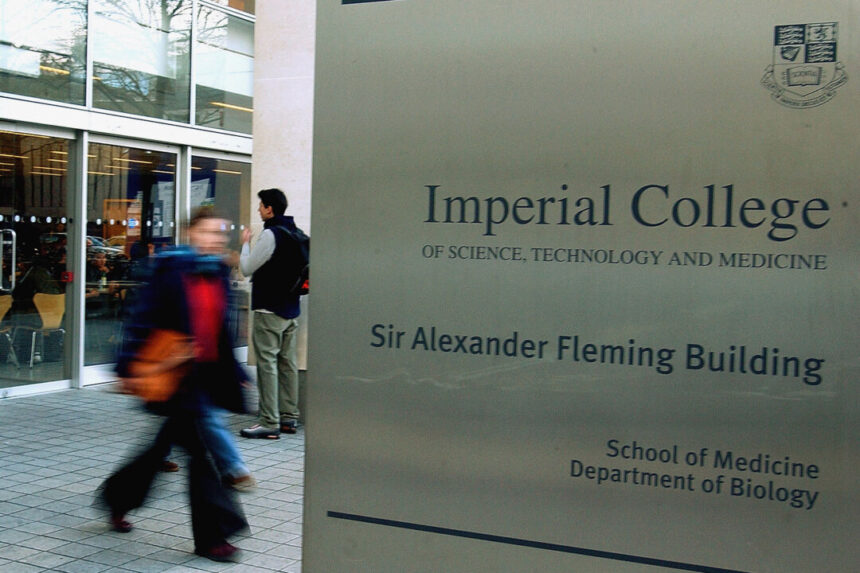Imperial College London has surpassed both Oxford and Cambridge in global university rankings for the first time, achieving significantly higher scores in sustainability and citations.
The QS World University Rankings 2025, released on Tuesday, saw Imperial climb to second place in the global rankings, claiming the top position among British universities and breaking the longstanding dominance of Oxbridge.
For the first time since the inception of the global rankings 20 years ago, neither the University of Oxford nor the University of Cambridge secured the top spot. In 2014, Imperial and Cambridge shared second place, but this year Imperial stands alone in that position for the first time.
Out of over 1,500 institutions ranked this year, the U.S. Massachusetts Institute of Technology (MIT) maintained its first-place position since 2012, leading the international league table.
Four British universities made it to the top 10, with Cambridge, previously in second place in 2014, falling to fifth place behind Harvard, while Imperial climbed from sixth place to second place.
Oxford remained in third place, and University College London (UCL) maintained its ninth-place ranking.
Among the 90 British universities ranked by QS this year, 20 improved their positions compared to last year. However, 58%—a total of 52 universities—saw a decline in their rankings, and 18 institutions maintained their positions.
High ‘Sustainability’ Score
The QS attributed Imperial’s improved ranking to its research performance, employability scores, and commitment to sustainability.
While the three universities received similar scores in most metrics, Imperial excelled in sustainability and citations per faculty, although it lagged in employment outcomes.
Imperial scored 99.7 in sustainability, reflecting the institution’s social and environmental impact and governance. This marked an increase from 94.4 in 2024, placing Imperial in sixth place for sustainability.
On the other hand, Oxford and Cambridge ranked 126th and 127th, respectively, with scores of 85 and 84.8, down from 97.8 and 97.3 in 2024.
In terms of citations per faculty, Imperial scored 93.9, outperforming Oxford and Cambridge, which scored 84.8 and 84.6, respectively.
However, in terms of employment outcomes, Imperial ranked 61st with a score of 93.4, while Oxbridge institutions scored 100.
Oxford and Cambridge also maintained strong scores in academic reputation, employer reputation, and faculty-student ratio.
Professor Hugh Brady, president of Imperial College London, attributed the university’s ranking to the dedication and quality of the entire community, emphasizing the collaborative efforts to address global challenges.
According to QS, British higher education faces challenges due to funding shortages, restrictions, and uncertainties surrounding the status of international students.
Chief Executive Jessica Turner highlighted the need for the next government to prioritize a well-resourced and championed higher education sector to maintain the UK’s standing as a global leader in research and education.
PA Media contributed to this report.
Please rewrite this sentence for me.
Source link





